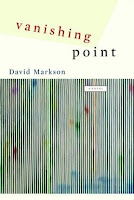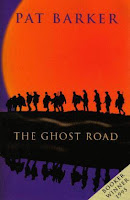 I am making this statement as an act of wilful defiance of military authority, because I believe the war is being deliberately prolonged by those who have the power to end it.
I am making this statement as an act of wilful defiance of military authority, because I believe the war is being deliberately prolonged by those who have the power to end it. I am a solder, convinced that I am acting on behalf of soldiers. I believe that this war, upon which I entered as a war of defence and liberation, has now become a war of aggression and conquest. I believe that this war, upon which I entered as a war of defence and liberation, has now become a war of aggression and conquest. I believe that the purposes for which I and my fellow soldiers entered upon this war should have been so clearly stated as to have made it impossible to change them, and that, had this been done, the objects which actuated us would now be attainable by negotiation.
I have seen and endured the suffering of the troops, and I can no longer be a party to prolong these sufferings for ends which I believe to be evil and unjust.
I am not protesting against the conduct of the war, but against the political errors and insincerities for which the fighting men are being sacrificed.
On behalf of those who are suffering now I make this protest against the deception which is being practised on them; also I believe that I may help to destroy the callous complacence with which the majority of those at home regard the continuance of agonies which they do not share, and which they have not sufficient imagination to realize.
S. Sassoon
July 1917
Pat Barker has written a moving and thought-provoking historical novel. The main characters, including the soldier who wrote the above letter, were real people caught in the nightmare of World War I. The book does not cover the war itself, but how it has affected the people involved. The primary focus is on the psychological effects of horrific events. A wonderful interplay between a psychiatrist, a protesting soldier, and a battle injured poet is introduced in this first of Barker's trilogy on the insanity of WWI. It is an anti-war novel developed through the experiences of a few individuals. Their experiences, sometimes described in gruesome details, show that any mind would be greatly challenged by the temporary insanity of war.
Barker has included interactions with town folk outside of the mental institution central to the book. These present the reader with other challenging issues such as class and sexism which were part of life in 1917. The book constantly challenges the reader. Barker never takes the easy or expected twist of events to make a point. She packs a lot into this great novel.
 Riches, prestige, everything can be lost. But the happiness in your own heart can only be dimmed; it will always be there, as long as you live, to make you happy again.
Riches, prestige, everything can be lost. But the happiness in your own heart can only be dimmed; it will always be there, as long as you live, to make you happy again. 










 It's evening now, and everybody's scribbling away, telling people the news, or as much of the news as we're allowed to tell them. I look up and down the dormitory and there's hardly a sound except for pages being turned, and here and there a pen scratching. It's like this every evening. And not just letters either. Diaries. Poems. At least two would-be poets in this hut alone.
It's evening now, and everybody's scribbling away, telling people the news, or as much of the news as we're allowed to tell them. I look up and down the dormitory and there's hardly a sound except for pages being turned, and here and there a pen scratching. It's like this every evening. And not just letters either. Diaries. Poems. At least two would-be poets in this hut alone.









 "I'm tellin' you, people aren't dumb or lazy. They just gotta see the possibilities--understand that they can do it. Then get outta their way. C'mon, I'll hitch up a horse and show you around."
"I'm tellin' you, people aren't dumb or lazy. They just gotta see the possibilities--understand that they can do it. Then get outta their way. C'mon, I'll hitch up a horse and show you around."


 I am making this statement as an act of wilful defiance of military authority, because I believe the war is being deliberately prolonged by those who have the power to end it.
I am making this statement as an act of wilful defiance of military authority, because I believe the war is being deliberately prolonged by those who have the power to end it. 


